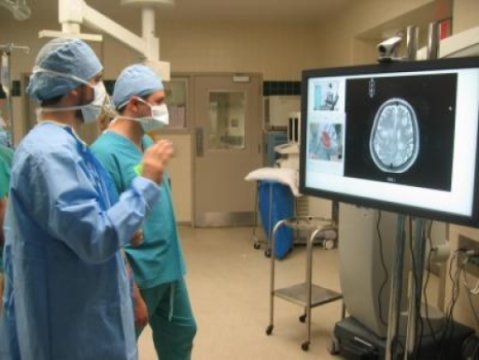Technology is advancing at an exponential rate, and it has brought us a number of unique conveniences. While it is obvious that it has allowed us things such as GPS navigation and the ability to buy products from the comfort of our computer chair, few understand the advancements being made in the medical field. Computer-assisted surgeries are quickly becoming a reality.
Increased Precision
There are few times when precision is more crucial than during a surgery. One wrong move can result in devastating consequences. Computer-assisted technology allows surgeons to significantly increase the accuracy of a procedure as they have access to instant feedback during every step of the surgery. Your surgeon will have a better action plan going into the procedure to ensure optimal results.
More Focused Procedures
Before surgeons had the ability to see the affected area, they never knew exactly what to expect when they opened the body for the procedure. Not only can this lead to sudden plan changes in the middle of surgery, but it can, in the worst case scenario, lead to the death of a patient when the interruption is severe enough. Many physicians, including the surgical specialists at Oroville Hospital, have access to the latest devices that allow them to monitor the situation at every stage of the surgery, allowing them to react more quickly to any complications that may arise during the operation.

Less Invasive
In the days of old, surgeons had little to go on other than a symptom run-down and x-ray visuals. Unfortunately, time and again they discovered something unexpected once they began surgery. Using computer-assisted technology, surgical procedures are much less invasive, and surgeons can get a firm grasp on the problem without having to open the body. Best of all, since intra-medullary rods are not used, the safety of the procedure is also considerably increased.
Da Vinci Robotic Surgery
Imagine a surgery with minimal incisions to cure a large problem. With Da Vinci robotic surgery, this is possible. This state-of-the-art procedure utilizes a magnified 3D high-definition vision system to allow your surgeon access to the root of your problem. The procedure has proven successful in over a million cases already, and its use is expected to increase in the years to come. Today, Da Vinci robotic surgery is used in 4 out of 5 radical prostatectomies in the US.
“Penelope”
Penelope is the name Dr. Michael R. Treat has given a robotic assistant that he designed to take over the duties of a typical scrub nurse. Her main duty is to keep track of the doctor’s tools, offering them when the doctor requests them and keeping them organized afterward. The robot is expected to cost more than $150,000 per unit, but Treat envisions them eventually replacing scrub nurses everywhere.
Saving Lives One Day at a Time
We live in exciting times when it comes to the medical field, and surgeons with the desire to treat their patients precisely are implementing the use of computer-assisted surgery. This technology is saving lives one day at a time.






Recent Comments